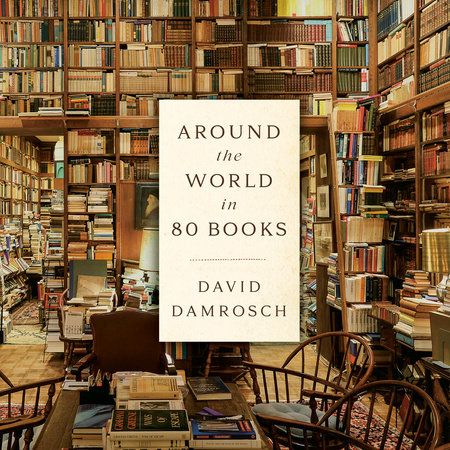
Robust and diverse additions to the 800s collection include a literary globe-trotting volume, a study on the novel in the age of Amazon, and a handful of collected essays from eccentric, witty and sharp authors on issues of race, education, epidemics, climate change and gender.
How to Live, What to Do: In Search of Ourselves in Life and Literature by Josh Cohen
As a pyschoanalyst and professor of literature, Mr. Cohen asks profound questions about the human experience through some of the best beloved characters in literature. Understand childhood better with lessons from Scout Finch, or learn what happens when ambition defines a life from Jay Gatsby. How to Live is lively and original.
Around the World in 80 Books by David Damrosch
Set out to counter a pandemic’s restrictions on travel by exploring eighty exceptional books from around the globe, Mr. Damrosch follows a literary itinerary from London to Venice, Tehran and points beyond. In his literary cartography, Damrosch includes compelling contemporary works as well as perennial classics, hard-bitten crime fiction as well as haunting works of fantasy, and the formative tales that introduce us as children to the world we’re entering. Taken together, these eighty titles offer us fresh perspective on enduring problems, from the social consequences of epidemics to rising racial inequality.
Cranial Fracking by Ian Frazier
The essayist’s latest collection is a gathering of insights on the most urgent current issues: climate change, education, globalism and culture. Mr. Frazier does not have all the answers, but at the very least he raises many valid questions.
The Everybody Ensemble: Donkeys, Essays and Other Pandemoniums by Amy Leach
In 24 short and eccentric essays, Ms. Leach invites us to celebrate our oddly interconnected world. The author experiments with praise songs, poetry, critique, philosophy, music theory and nature writing. The end result is an effervescent tonic of a book.
Everything and Less: The Novel in the Age of Amazon by Mark McGurl
The driving question in Mr. McGurl’s book is, “What has happened to fiction in the age of platform capitalism?” The author shows how consumerist logic – if you like this, you might also like this – has reorganized the fiction universe and how contemporary fiction has less to do with writing than with the manner of its distribution.
Things I Have Withheld by Kei Miller
This stunning collection of essays is a blend of memoir and criticism regarding race, sex and gender. Mr. Miller writes with a conversational cadence, resulting in an innovative achievement which challenges readers to interrogate what seems unsayable and why.
These Precious Days by Ann Patchett
A literary alchemist, Ms. Patchett’s deeply personal collection of essays turn her personal experiences into universal truths. From her youthful memories of Paris to the joys of knitting, Ms. Patchett connects life and art as she illuminates what matters most. Infused with the author’s signature grace, wit and warmth, the pieces in These Precious Days resonate deep in the soul and leave an indelible mark.
Orwell’s Roses by Rebecca Solnit
A must-read non-fiction work for George Orwell fans, Ms. Solnit’s title is a nod to the author’s passion for gardening. Part biography, part memoir, part historical and cultural analysis and part literary criticism, Solnit’s book is a love letter in prose to roses, to Orwell and to the enduring relevance of his ethical sensibility.